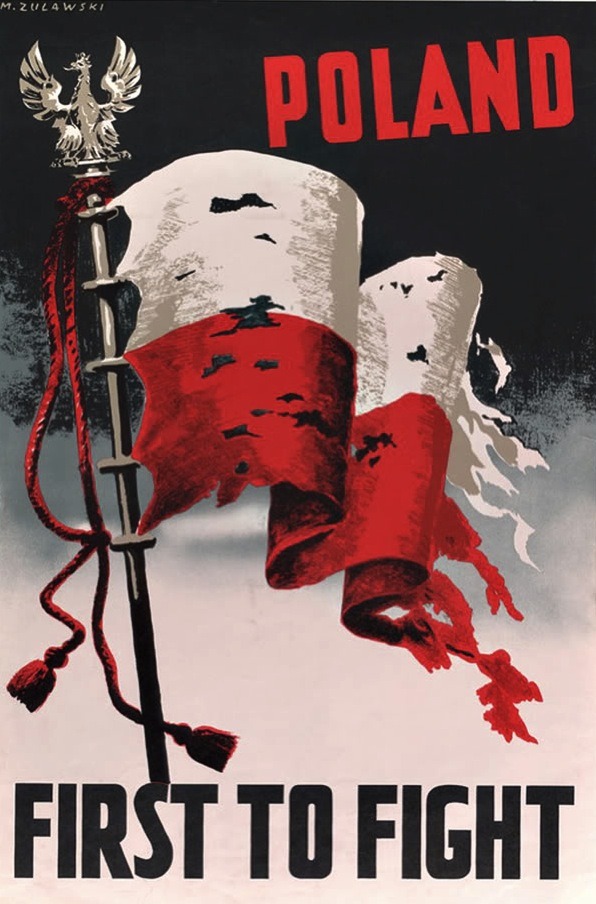Stanisław Kowalski, Polish People's Party, Poland
Stanislav Kowalski was born “Stanley Kowalski” in Chicago, Illinois on April 3, 1924, though his family moved to
New Orleans shortly thereafter. He grew up in Louisiana during the ascendency of
Huey Long, and his family became ardent Longists. While not academically inclined, young Stan became fascinated with politics and power and studied the ideas and origins of his political hero. However, he soon became distracted by the plight of his people suffering under Nazi rule, and at the age of 20 snuck on a freighter bound for Europe in order to join the
Home Army, where he served with distinction in carrying out acts of sabotage (though some of his political opponents accused him of engaging in atrocities such as the murdering of German civilians). His activities were largely in association with the
Bataliony Chłopskie or “Farmers’ Battalion,” the paramilitary arm of the
People’s Party. Despite having lived most of his life in urban New Orleans, Kowalski found himself more in line with the agrarian philosophy of the PSL, which he managed to square with his family’s support of Long.
As the Nazi empire dissolved in 1955, the Home Army stepped up its operations against established authorities, managing to seize control of
Krakow and
Lvov. Following the triumph of the Wehrmacht junta, the aging
Erwin Rommel negotiated an agreement with Home Army leader
Tadeusz Bór-Komorowski which allowed for German forces to permanently withdraw from Poland in exchange for access to certain Polish resources. Being devastated after sixteen years of Nazi domination, the reduced and weakened Polish people were in no position to play hardball with the German government, resulting in a nominally independent Polish state.
Based out of Krakow, the Komorowski government’s hold on power was tenuous at best. Poland had been reduced in population significantly, and traditional power and social structures had been effectively eradicated. Other than the Catholic faith, which itself had been persecuted with the enforcement of state paganism, little remained to serve as a common cultural base for the Polish people. The Komorowski government seemed to operate under the assumption that the old order could be reassembled. However, Komorowski’s age coupled with his general reactionary approach to governance bred division within the government. In what amounted a soft coup, a number of his officers, led by Kowalski, pushed the old man out of power in April of 1956. A new constitution was promulgated on May 3, proclaiming a “People’s Republic” written along the outlines of Kowalski’s ideology.
Once in power, Kowalski ruled Poland in a manner not unlike his idol Long, earning him the nickname “The Kingfish of the Vistula.” Ruling with the support of his now renamed
Polish People’s Party (PSL), he presented himself as the man who would usher in the “rebirth” of Poland through radical wealth redistribution schemes, military buildup, and infrastructure projects. Land previously worked by Polish slaves under the Nazis was allotted to farmers, creating widespread land “ownership” in a country ruled for centuries under various forms of feudalism. Eighteen months of military service was required for every eligible male between the ages of 16 to 24 as the Home Army transformed into the more conventional
Polish People’s Army. Perhaps his greatest achievement, however, was the rebuilding of
Warsaw. Inspired by the
“Longvilles” built in the United States, Kowalski wanted the rebuilt city to reflect modern architectural and urban planning trends with an emphasis on garden spaces and plazas. His crowning moment of triumph for the new city was when Warsaw hosted the
1976 Olympics, impressing most international guests. During the height of his power, Kowalski had many international admirers, especially in the normally isolationist United States. Kowalski was the guest of several US Presidents, and even spoke at a meeting of the
Share Our Wealth Society to talk of the reforms he implemented. His work “Thoughts on the Rebirth of Poland” outlining his political beliefs – known colloquially as
“The Green Book” for its iconic green cover – was a bestselling book in many Western countries. There was even an American movie called
The People’s Man in 1961 which glorified his career as a resistance fighter and his political reforms.
Much like his idol, Kowalski was also authoritarian and fond of patronage. The redistribution of land actually amounted government ownership of arable land with new “owners” who were required to pay “donations” to Kowalski’s PSL. This also created a stream of steady voters that served as the bulk of Kowalski’s power base. In theory, elections were fair and open, but patronage and occasional violence often kept opposition parties at bay. The fact that he continued to be re-elected with little to no opposition often led his critics to accuse him of being a dictator.
Kowalski also struggled in the arena of foreign diplomacy, especially in asserting Polish independence. In the early years of Kowalski’s rule, he strove to maintain good relations with neighboring Germany so as not to encourage further German intervention. However, he later felt a growing pressure to assert Polish autonomy. He did so by increasing ties with reactionary France as well as Poland’s neighbor and historical ally Hungary. By the late 1970’s, as Germany was convulsed by pro-democracy protests, Kowalski mulled nationalizing German-owned companies. Before he could do so, he suffered a stroke in March 1980, prompting him to later resign under the pretense of having accomplished his goals. He managed to spend the rest of his life in retirement as his successors sought to play on his legacy. Conspiracy theorists maintain that his strokes were a little too convenient, and that he may have been deliberately poisoned by those around him in order to protect Poland from German invasion.
Today, Kowalski’s legacy is still quite positive in Poland, though less so outside as it had been during his rule. Critics have noted Kowalski’s legacy of corruption and authoritarianism being a major hindrance to the development of democratic institutions in the purported “People’s Republic.” Today, the People’s Party still remains in power, though some commentators believe their grip on power to be tenuous at best. Still, many in Poland regard Kowalski as the man responsible for the nation’s rebirth in the wake of Nazi devastation.





